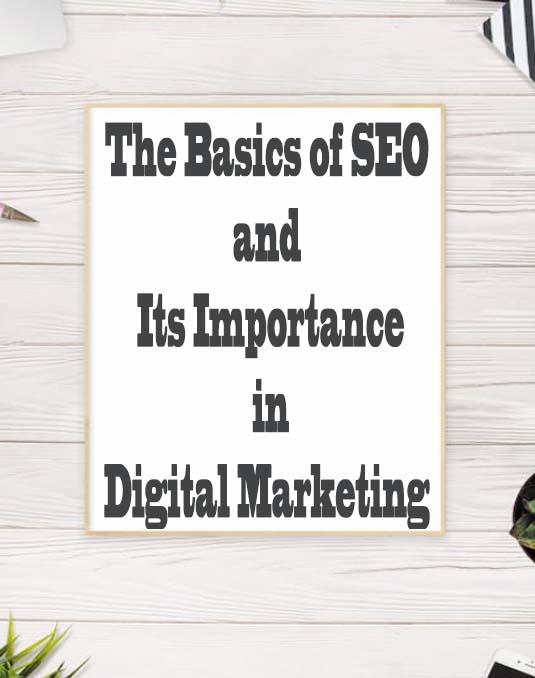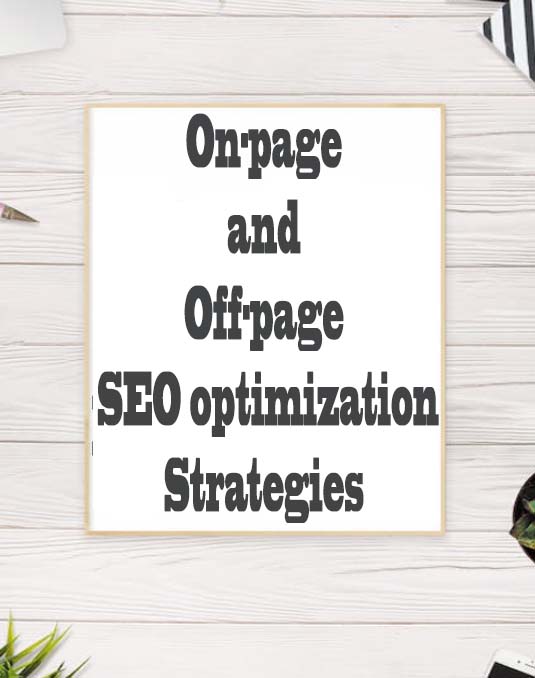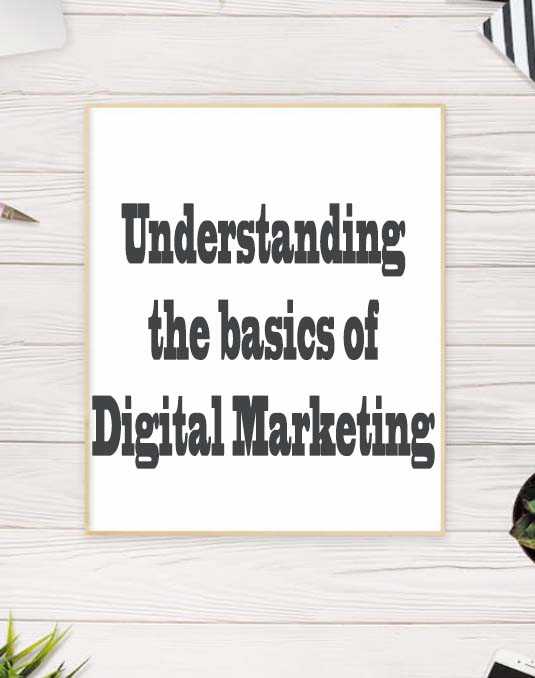
Introduction
In today's digital age, having a strong online presence is crucial for any business. As the competition intensifies across various industries, it is essential to implement effective strategies to stand out and drive organic traffic to your website. This is where Search Engine Optimization (SEO) comes into play.
In this article, we will explore the basics of SEO and understand why it is incredibly important in the world of digital marketing.
What is SEO?
SEO, or Search Engine Optimization, is the process of optimizing a website to increase its visibility and ranking on search engine result pages (SERPs).
It involves various techniques, such as:
- Improving website structure.
- Creating valuable content.
- Optimizing keywords.
- Building high-quality backlinks.
The ultimate goal of SEO is to enhance a website's visibility, thereby attracting more organic traffic and potential customers.
Importance of SEO in Digital Marketing
- Increased Organic Traffic: SEO plays a significant role in driving organic traffic to your website. When your site ranks higher on search engine result pages, it is more likely to be clicked by users searching for relevant keywords. Being visible to potential customers at the right time can significantly increase your website visits and conversion rates.
- Cost-Effective Strategy: Compared to traditional marketing techniques, SEO is a cost-effective strategy with a higher return on investment. Unlike paid advertisements, SEO focuses on organic rankings, meaning you don't have to pay for each click or impression. Once your website is optimized, it can generate organic traffic for an extended period without further investment.
- Builds Credibility and Trust: Higher search engine rankings are often associated with credibility and trustworthiness. When your website appears on the top of search results, users perceive it as a reliable source of information or products. In contrast, lower-ranked websites may be seen as less credible, and users are less likely to trust their offerings.
- Long-Term Results: While SEO requires time and effort, the results can have long-term benefits. Unlike other marketing strategies that may generate short-term spikes in traffic, SEO provides lasting results. By consistently optimizing your website and staying up-to-date with search engine algorithms, you can maintain and improve your rankings over time.
- Enhanced User Experience: SEO not only improves rankings but also enhances the overall user experience. Key SEO elements, such as responsive web design, fast loading speed, and easy navigation, contribute to a positive user experience. Websites that provide valuable content and a seamless browsing experience are more likely to be shared and recommended by users, further boosting their visibility.
Improving website structure
Improving website structure is an important aspect of search engine optimization (SEO). It helps search engines understand the content and organization of your website, making it easier for them to crawl and index your pages. Here are some tips to improve website structure for SEO:
1. Use a logical hierarchy: Arrange your website's pages in a hierarchical structure, with the homepage at the top and subpages organized under relevant categories. This helps both users and search engines navigate your site effectively.
2. Use descriptive URLs: Ensure your URLs are descriptive and contain relevant keywords. Avoid using long, complicated URLs with numbers or special characters. A clear URL structure helps both users and search engines understand the content of the page.
3. Create a comprehensive navigation menu: Make sure your navigation menu is easy to find and browse. Use clear and concise labels for each menu item and include dropdown menus for subcategories or related pages. This helps users find what they're looking for and allows search engines to understand the structure of your site.
4. Implement breadcrumb navigation: Breadcrumbs provide a trail of links that show users the path from the homepage to the current page. They improve user experience and also help search engines understand the hierarchy and context of each page.
5. Ensure a responsive design: With the increasing use of mobile devices, it's crucial to have a responsive website design that adapts to different screen sizes. A mobile-friendly design improves user experience and can also positively impact your site's SEO performance.
6. Organize content with headings and subheadings: Use heading tags (H1, H2, H3, etc.) to organize your content. Heading tags provide structure and hierarchy, helping search engines understand the importance of different sections and keywords within your content.
7. Optimize internal linking: Create internal links between relevant pages within your website. Internal links help distribute link equity throughout your site and improve user navigation. Additionally, they help search engines discover and index your pages more efficiently.
8. Remove duplicate content: Duplicate content can confuse search engines and diminish the visibility of your website in search results. Check for duplicate content issues and address them by consolidating, removing, or adding canonical tags to indicate the preferred version of the page.
9. Use XML sitemaps: Implement an XML sitemap that lists all the pages on your website. Submitting the sitemap to search engines helps them discover and crawl your pages more effectively.
10. Monitor site speed: A fast-loading website improves both user experience and search engine rankings. Regularly monitor and optimize your website's speed by compressing images, minimizing code, and leveraging caching techniques.
Improving your website structure enhances your SEO efforts by making your site more accessible and understandable to both users and search engines. By following these tips, you can significantly improve the visibility and performance of your website in search engine results.
Creating valuable content
Creating valuable content is essential for SEO success. Valuable content refers to content that is relevant, informative, and valuable to your target audience. High-quality content helps to establish credibility, drive traffic, and improve search engine rankings.
Here are some tips for creating valuable content for SEO:
1. Understand your audience: Research and understand your target audience's needs, interests, and pain points. This will help you create content that resonates with them.
2. Conduct keyword research: Identify relevant keywords and phrases that your audience uses to search for information related to your industry. Incorporate these keywords strategically throughout your content to improve visibility in search engine results.
3. Provide informative and well-researched content: Create in-depth, comprehensive content that provides real value to your audience. Make sure your content is accurate, up-to-date, and supported by credible sources. This will establish your website as a reliable source of information.
4. Use a variety of content formats: Incorporate a mix of text, visuals, and multimedia elements, such as videos and infographics, to make your content more engaging and user-friendly.
5. Optimize your content for SEO: Use relevant keywords in your page titles, headers, meta descriptions, and throughout the content. Additionally, ensure your content is well-structured, easy to read, and mobile-friendly. This will help search engines understand and index your content effectively.
6. Focus on user experience: Create content that is user-friendly and easy to navigate. Ensure that your website is fast-loading, mobile-responsive, and has a visually appealing design. A positive user experience contributes to higher engagement, longer visit duration, and improved SEO rankings.
7. Promote your content: Share your content through various channels, such as social media, email newsletters, and industry forums. This can help increase visibility, generate backlinks, and drive more organic traffic to your website.
8. Monitor and analyze your content performance: Track and analyze metrics such as website traffic, engagement rates, and conversion rates to understand which types of content are performing well and resonating with your audience. Use this data to optimize your content strategy and make informed decisions for future content creation.
Remember, the key to achieving good SEO outcomes is to create content that genuinely serves the needs of your target audience. By consistently providing valuable content, you can improve your website's visibility, increase organic traffic, and ultimately, drive better business results.
Optimizing keywords
SEO, or Search Engine Optimization, is the practice of optimizing a website to improve its visibility and rankings in search engine results pages (SERPs). One important aspect of SEO is optimizing keywords.
Keywords are words or phrases that users type into search engines when looking for information, products, or services.
Optimizing keywords involves strategically incorporating relevant keywords into various elements of a website to attract organic traffic from search engines.
Here are some key strategies for optimizing keywords in SEO:
1. Keyword Research: Conduct thorough keyword research to identify the most relevant and high-traffic keywords in your industry. Tools like Google Keyword Planner, SEMrush, Moz Keyword Explorer and Lookkle keyword research can help in this process.
2. On-Page Optimization: Incorporate keywords in critical on-page elements like the title tag, meta descriptions, heading tags, URLs, and body content. However, avoid keyword stuffing, as it can lead to a poor user experience and potential penalties from search engines.
3. Content Optimization: Create high-quality, valuable content that satisfies users' search intent. Use relevant keywords naturally throughout your content to signal its relevance to search engines. Incorporating keywords in headings, subheadings, image alt tags, and within the body text can enhance optimization.
4. URL Structure: Include relevant keywords in the URL structure of your web pages. A clear and descriptive URL can help search engines and users understand what the page is about.
5. Backlinks: Build high-quality backlinks from reputable websites using anchor text that includes relevant keywords. This can help search engines understand the context and relevance of your content.
6. Monitoring and Adjusting: Continuously monitor your keyword rankings and track the performance of your optimized pages. Analyze the data and make necessary adjustments to improve your keyword optimization strategy.
Remember, keyword optimization is just one part of a comprehensive SEO strategy. It's also important to focus on other elements like website speed, mobile optimization, user experience,
Building high-quality backlinks
Building high-quality backlinks is an important aspect of search engine optimization (SEO) as it helps to improve the visibility and ranking of your website in search engine results pages.
Here are some strategies to build high-quality backlinks:
1. Create high-quality content: Content that is valuable, informative, and unique has a higher chance of getting linked by other websites and influencers. Focus on creating content that fills a gap in the industry, provides actionable tips, or presents a unique perspective.
2. Guest posting: Write and contribute guest posts on authoritative websites in your niche. Ensure that the website you choose to guest post on has a good reputation and a decent domain authority. Guest posting allows you to showcase your expertise and gain backlinks in return.
3. Influencer outreach: Connect with industry influencers and thought leaders in your niche. Engage with their content, share their posts, and build relationships. Once you have built a rapport, you can politely ask them to share or link to your content if it is relevant and valuable to their audience.
4. Broken link building: Identify broken links on high-authority websites in your niche. Then, create content that can replace the broken link and reach out to the website owner to inform them about the broken link and suggest your content as a replacement.
5. Participate in community discussions: Engage in relevant online communities, forums, and Q&A platforms where you can contribute your expertise and include your website's link when appropriate. Be an active member, provide helpful answers, and demonstrate your credibility to earn backlinks.
6. Skyscraper technique: Find popular content in your niche that has gained a lot of backlinks. Create a better version of that content by adding more information, updating statistics, or improving the design. Reach out to the websites that linked to the original content and inform them about your improved version, increasing the likelihood of them linking to your content instead.
7. Utilize social media: Share your content and engage with your target audience on social media platforms. If your content resonates with people, they may share it, link to it, or reference it in their own content, ultimately generating high-quality backlinks.
Remember, quality over quantity is crucial when building backlinks. Focus on acquiring backlinks from reputable websites that have relevance and authority in your niche. Building a strong backlink profile takes time and effort, but it can significantly impact your website’s visibility and ranking in search engines.
Conclusion
In the digital marketing landscape, SEO is undeniably vital for businesses of all sizes.
By leveraging SEO techniques effectively, you can increase website visibility, attract organic traffic, build credibility, and achieve higher conversion rates.
While it may take time to see the results, the long-term benefits make SEO an essential component of any digital marketing strategy. So, invest in SEO today and reap the rewards of a robust online presence.
Tips on SEO and Online Business
Next Articles
Previous Articles















